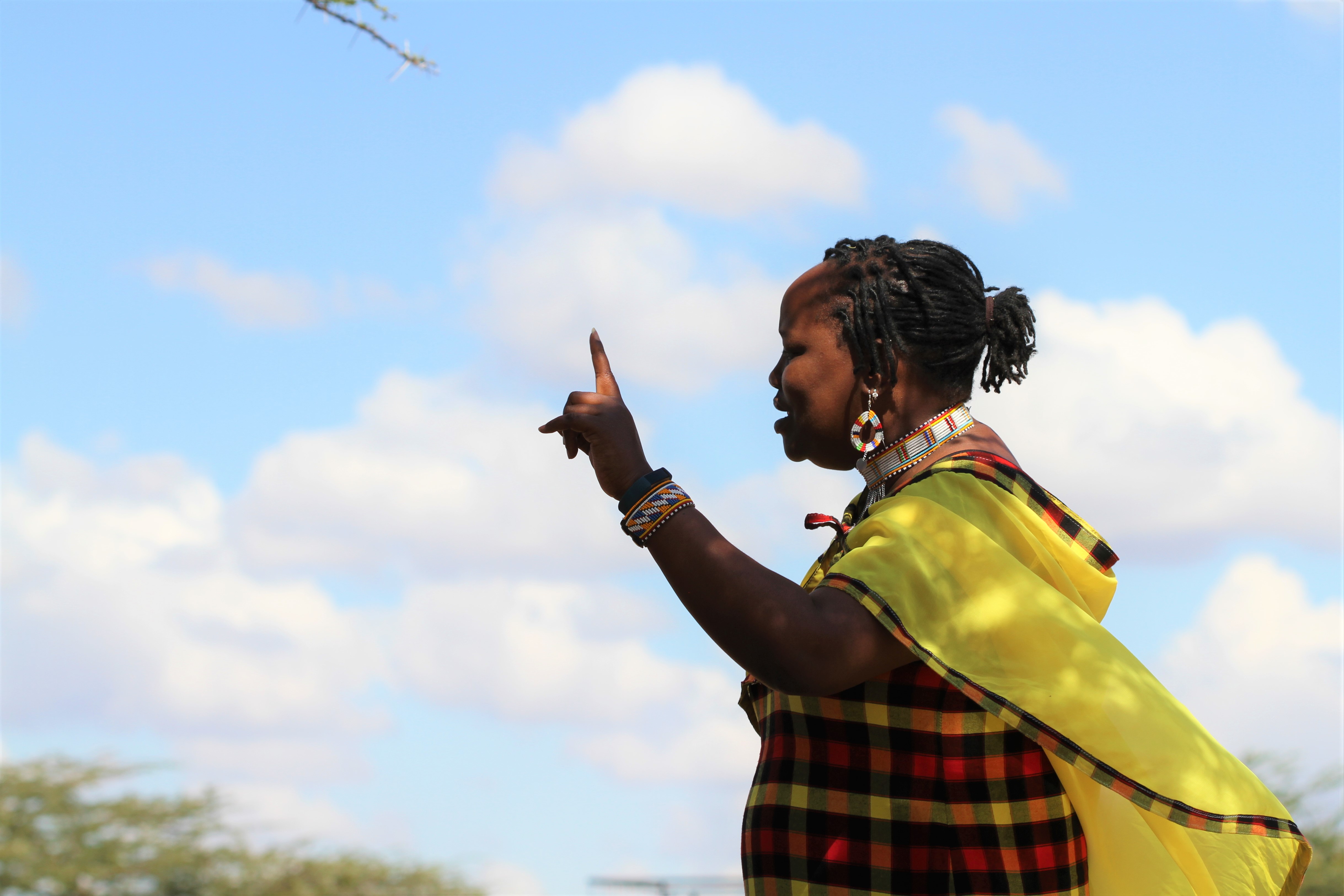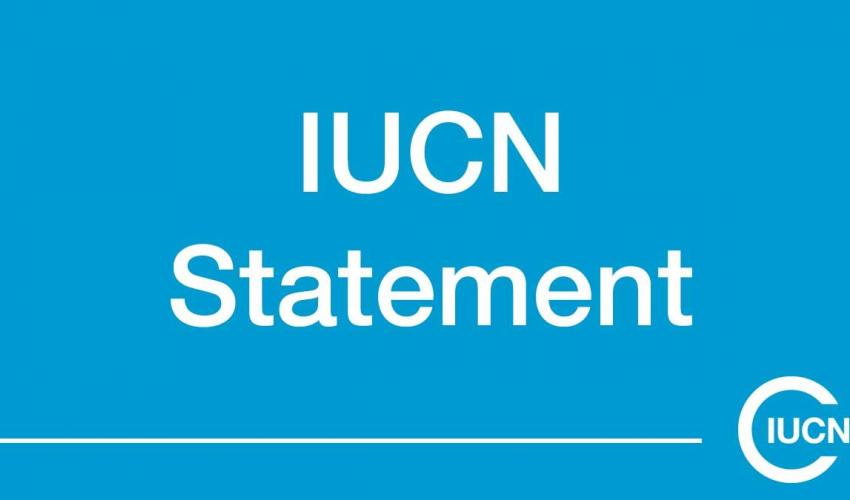Introducing the Indigenous Negotiations Resource Guide
CEESP News: Patricia Dunne, CEESP member and Director of Applied Social Science at Conservation International (CI) and Alli Cruz, Senior Manager, Indigenous & Traditional Peoples Program at CI.
Indigenous peoples and local communities (IPLCs) are crucial allies in delivering successful conservation outcomes, yet nature managed by IPLCs is under increasing pressure from external actors. In an effort to support communities facing these types of threats, Conservation International is proud to formally launch the Indigenous Negotiations Resource Guide, aimed at helping to level the playing field when it comes to negotiation.

Martha Ntoipo, a Maasai woman from Tanzania and an advisor to CI’s Indigenous Negotiations Program, addresses the Lewuaso Maasai community of northern Kenya on the importance of negotiation capacity. The Lewuaso Maasai are facing a number of threats to their lands and rights, including a proposed dam that would flood grazing lands for their cattle
Photo: Patricia M. Dunne
Indigenous peoples and local communities (IPLCs) have long been crucial allies in delivering successful conservation outcomes. Yet, nature managed by Indigenous peoples and local communities is under increasing pressure from resource extraction, infrastructure buildout and conservation and development projects. All too often, communities are forced to sign agreements with external actors that undermine their rights and limit their ability to sustainably manage their lands, waters and natural resources.
Some communities are bucking this trend by negotiating binding agreements with project proponents that establish new standards for fair benefit sharing, for full and effective participation in project design and implementation, and that reinforce their rights and address their priorities. These agreements have changed what it means to provide consent, and in turn, what it means to respect and support rights.
Building on our partnerships with communities and Indigenous peoples' organizations, Conservation International (CI) has developed the Indigenous Negotiations Resource Guide in an effort to help level the playing field when it comes to negotiation. The Guide includes a collection of best practices, lessons learned, and case studies to assist Indigenous negotiators at all stages of negotiation. The Guide focuses on universal negotiations skills that can benefit Indigenous peoples generally, irrespective of local context or sector.
CI formally launched the Indigenous Negotiations Resource Guide during a side event webinar at the United Nations Permanent Forum on Indigenous Issues on May 5. In addition to introducing the Guide, invited panelists from Indigenous communities and NGOs supporting negotiations capacity held a rich discussion on why a negotiations approach is important for communities. Speakers included Ginger Gibson from The Firelight Group; Anne Marie Sam from the Nak'azdli First Nation; Sinegugu Zukulu from Sustaining the Wild Coast; Emily Greenspan from Oxfam America; and Jo Ann Guillao from Partners for Indigenous Knowledge-Philippines. The discussion focused on how a negotiations approach can not only support Indigenous rights, but also address communities’ priorities and visions for the future, and support them in continuing to safeguard nature. Panelists shared insights from their own experiences with negotiation, including reflections on the need for strong community unity in negotiation, the vital importance for gender and women’s considerations in the negotiations process, and on the need for conservation and other NGO supports to be good listers in the effort to support IPLCs. A recording of this important discussion can be found here.
CI is eager to expand our network of partnerships and support for this important work. If you are interested in learning more about the Indigenous Negotiations Resource Guide or how CI can work with you or your partners in increasing negotiations capacity and access to resources, please contact Patricia Dunne, Director of Applied Social Science or Alli Cruz, Senior Manger of the Indigenous and Traditional Peoples Program.



